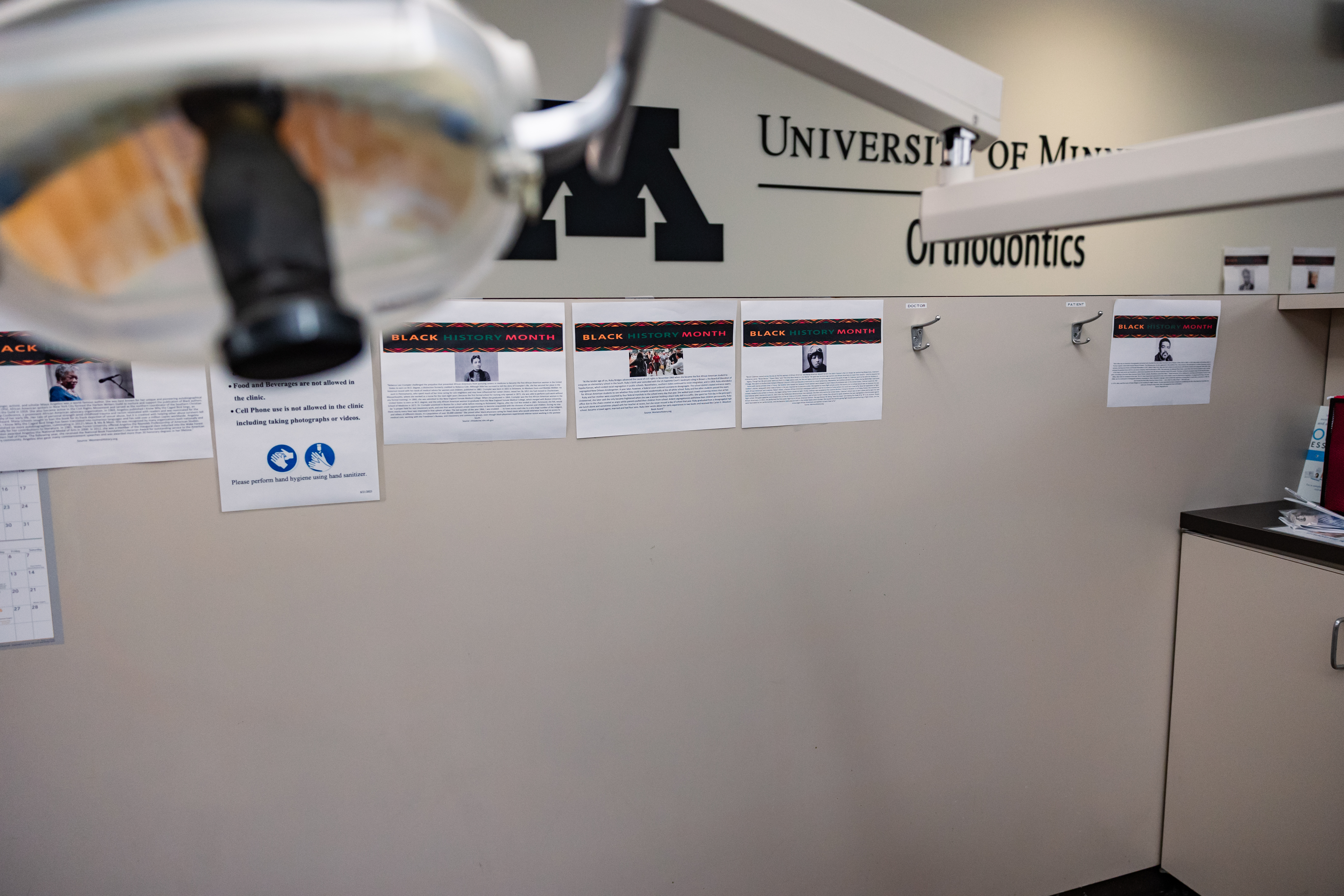Orthodontics resident provides a lesson in Black history this February
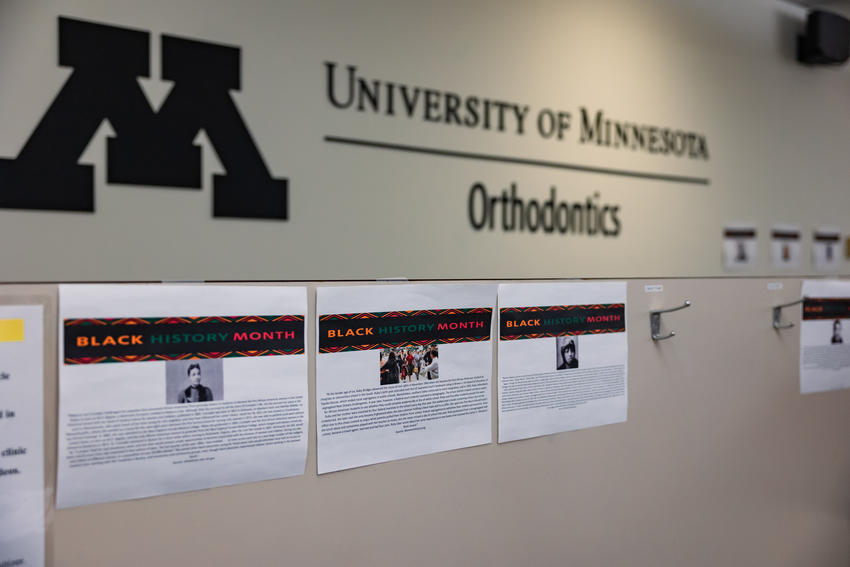
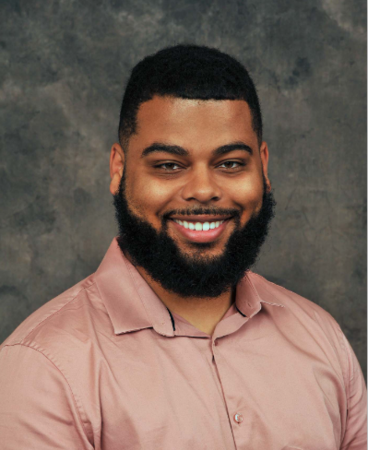
This Black History Month, an orthodontics resident is doing his part to honor the legacy of Black historical figures.
Kaimen Obeng, a first-year resident in the Division of Orthodontics, first discovered his passion for the field when he received treatment at a young age. “As a child, I was shy and unconfident in my smile,” he said. “The orthodontic treatment I received gave me a newfound confidence in my appearance, which translated to all aspects of my life. The life-changing impact orthodontics had on my own life inspired me to become an orthodontist, so I could spend my career making those same positive impacts on my patients.”
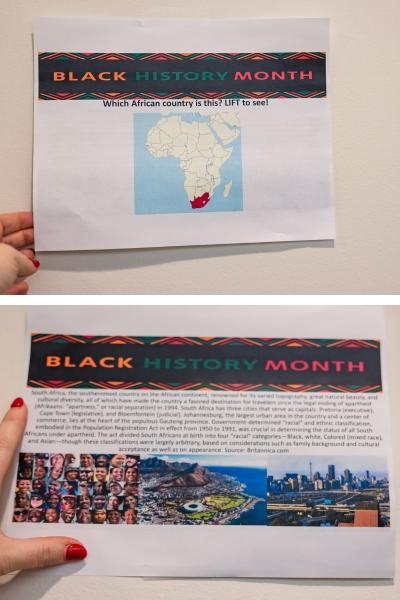
Obeng was drawn to the University of Minnesota for “the structure of the program, the cutting-edge technology available to us and, most importantly, the elite level caliber of the faculty.”
This February, Obeng wanted to do his part to honor Black history and teach his fellow residents, faculty, staff and patients about individuals they might not know. “I took it upon myself to research various lesser-known Black historical figures, including inventors, scientists, explorers, medical professionals and more,” he explained.
Obeng hung biographies and photos in his co-residents’ operatories, so patients and residents alike could learn something new about a historical figure. He also created interactive question-and-answer posters with facts about Black history.
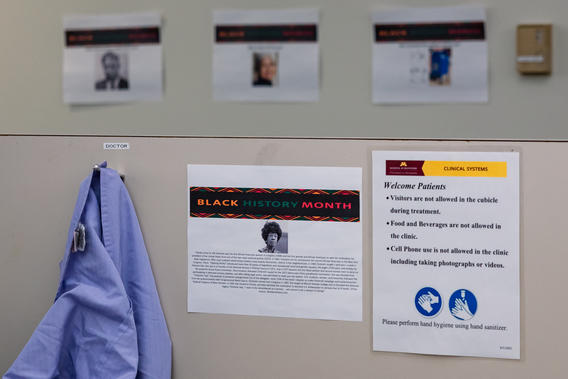
Obeng undertook this project to contribute to a better understanding of Black history—something he says has been long missing from the American educational system. “I felt that by taking on this project, I was able to do my part in highlighting the barriers that those who came before needed to overcome to allow me to be successful today,” he said. “I am a strong believer that those who are ignorant of history are doomed to repeat it.”
The photos and facts are a small step, but one that Obeng hopes can “plant a seed.”
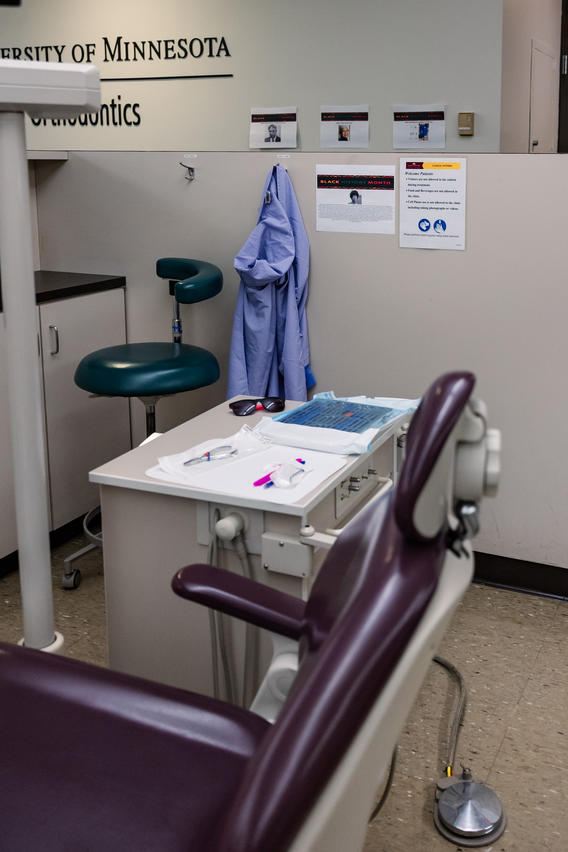
“I hope that my project has opened the eyes of faculty, staff, students and patients as to how little they have been taught about Black history, and hopefully spark a curiosity that will lead them to explore more deeply,” he said.
Obeng is proud to celebrate Black History Month, and hopes others will follow in his footsteps.
“I believe it is essential and important to acknowledge what Black people have done and continue to do for this country,” he said. “Black History Month is not a competition about showing why Black people are better. It is about showing why Black people deserve to be shown respect and given opportunities to contribute like everyone else.”
